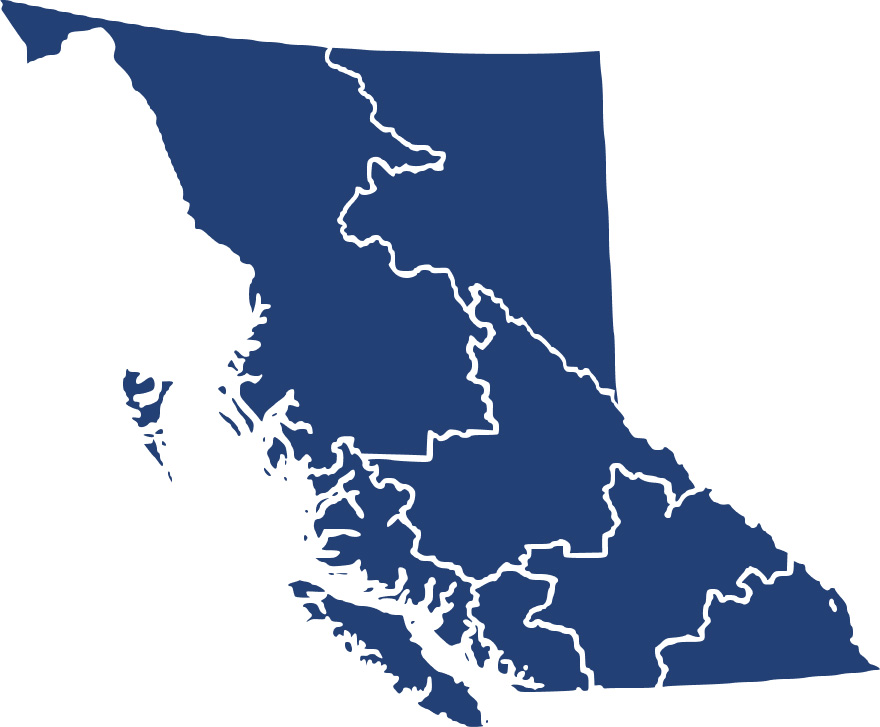Career Overview
This group includes technical tradespersons and related skilled workers, as well as commercial divers.
People in these occupations:
- Repair, service, install, adjust or make a variety of products
- Work in a wide range of establishments
- May be self-employed
Duties
Gunsmiths:
- Make guns
- Repair and modify firearms according to blueprints or customers' requirements
Locksmiths:
- Repair, install and adjust locks
- Make keys and change lock combinations
Safe and vault servicers:
- Install, repair and maintain safes and vaults in banks and other establishments
Saw fitters:
- Repair, set and sharpen band saws, chain saws, circular saws and other types of saw blades according to requirements
Die setters:
- Select dies for forging according to work order and specifications
- Position align and bolt dies to ram and anvil of power presses and hammers
Commercial divers:
- Perform underwater activities related to construction, inspection, search, salvage, repair and photography
Earnings
Earnings is income that workers receive in exchange for their labour. Depending on the type of employment, earnings can be in the form of wages (hourly), salaries (fixed monthly or annual) or self-employed earnings.
Work Environment
# Workers Employed
1,950% Employed Full Time
52%Key aspects of the work in this occupation:
- Work takes place in a controlled indoor setting
- Work also takes place outdoors, so workers may be exposed to various weather conditions
- Working with heavy equipment, instruments, machinery or power/hand tools may be a potential source of injury
- The workplace may be noisy enough to affect hearing
- Work may produce a vibrating or back and forth motion in the body when using equipment such as chain saws or drills
Career Pathways
There is little or no movement among occupations in this unit group.
Progression to supervisory positions is possible with experience.
Related Careers
Occupational Interests
It’s important to understand what kinds of occupations align with your interests.
For more about occupational interests visit Skills for the Future Workforce > Characteristics.
Here are the top occupational interest(s) for this career profile:
Job Titles
Education, Training and Skills
- Completion of secondary school is usually required.
- Completion of a two- to four-year apprenticeship program in a relevant trade, such as locksmith or saw fitter, or
- College, high school or industry courses combined with several years of related work experience, or
- Several years of on-the-job training are required.
- Trade certification for locksmiths is available, but voluntary, in Nova Scotia, New Brunswick, Saskatchewan, Alberta, British Columbia, the Northwest Territories and Nunavut.
- Sawfiler/fitter and sawfitter trade certification is available, but voluntary, in Quebec, Alberta, British Columbia and the Yukon.
- Provincial trade certification or licensing may be required for other occupations in this unit group.
- Commercial divers must meet the requirements of CSA Standard Z275.4-02, Competency Standard for Diving Operations.
- Commercial divers require an Occupational Diver Certificate of Competency issued by the Diver Certification Board of Canada (DCBC) or qualification earned through a formal education program, training courses in diving or a combination of education and practical experience.
- Commercial divers require certification of competency and a diving medical examination from an approved hyperbaric physician.
- Commercial divers may require military or police diving experience.
- Commercial divers usually require a provincial blaster's licence for the setting and detonation of explosives.
For more information please see SkilledTradesBC's website at https://skilledtradesbc.ca.
Workers who are certified for an occupation by a regulator elsewhere in Canada can apply for the same certification from the regulator in B.C. Under the terms of the Canadian Free Trade Agreement (CFTA), most applicants who are transferring their credentials from elsewhere in Canada will not be required to complete additional training or testing. However, the B.C. regulator may ask applicants to provide further information such as a letter of good standing, references, or criminal record check.
For those who trained outside of Canada and never received certification from any Canadian jurisdiction, a full assessment is likely needed. Most occupational regulators have a process for assessment and recognize internationally trained applicants.
For details on how to apply for certification in B.C., contact SkilledTradesBC and/or WorkSafe BC and/or the Ministry of Public Safety and Solicitor General: Security Services.
For information about labour mobility in Canada, visit www.workersmobility.ca.
View a list of Professional Regulatory Authorities in B.C.
Trades training resources
Visit our trades training page at www.workbc.ca/trades to learn about apprenticeship and trades training in B.C.
Education programs in B.C.
The following program areas are related to this occupation:
- Other Vehicle Maintenance and Repair

Skills
Every job calls for a certain set of skills. Knowing those skills is the first step in finding a good career fit.
Here, you will find the 10 most relevant workplace skills. Some are more important to achieving success in a certain career than others. These skills may come naturally to you or you may need to gain them through education, training and experience.
See the list of work-related skills below, ranked in order of importance for this career. Check out the list and see if this career matches your skills—take that first step!
Watching gauges, dials or other indicators to make sure that a machine is working properly.
Using logic and reasoning to identify the strengths and weaknesses of alternative solutions, conclusions or approaches to problems.
Giving full attention to what other people are saying, taking time to understand the points being made, asking questions as appropriate, and not interrupting at inappropriate times.
Keeping track of and assessing your performance, other individuals, or organizations to make improvements or take corrective action.
Talking to others to share information effectively.
Understanding written sentences and paragraphs in work-related documents.
Controlling operations of equipment or systems.
Conducting tests and inspections of products, services or processes to evaluate quality or performance.
Managing one’s own time and the time of others.
Being able to solve novel, ill-defined problems in complex, real-world settings.
Labour Market Statistics
Discover data, facts and information that have been gathered and analyzed. Learn about the characteristics of the economy and labour market in B.C.
Employment
Find out about employment types and trends by region and industry.
Employment
1,950Employment by Region















| Region | Employment | % Employment of this Occupation |
|---|---|---|
| Cariboo | 160 | 8.2% |
| Kootenay | 80 | 4.1% |
| Mainland/Southwest | 795 | 40.8% |
| North Coast and Nechako | 90 | 4.6% |
| Northeast | 45 | 2.3% |
| Thompson-Okanagan | 280 | 14.4% |
| Vancouver Island/Coast | 505 | 25.9% |
Labour Market Outlook
The B.C. Labour Market Outlook is a 10-year forecast of the expected supply and demand for labour in the province. It’s usually updated every year. The purpose is to provide British Columbians with the knowledge to make informed decisions on careers, skills training, education and hiring.
Forecasted Job Openings (2023-2033)
490Forecasted Job Openings
Forecasted Employment Growth Rate
Composition of Job Openings
Job Openings by Region (2023-2033)















| Region | Job Openings | Avg. Annual Employment Growth |
|---|---|---|
| Cariboo | 20 | -1.7% |
| Kootenay | 20 | 0.5% |
| Mainland/Southwest | 200 | 0.0% |
| North Coast and Nechako | 20 | 0.8% |
| Northeast | 10 | -1.0% |
| Thompson-Okanagan | 90 | 0.9% |
| Vancouver Island/Coast | 140 | 0.7% |
Industry Highlights
Learn about the opportunities in B.C.'s major industries, including employment trends, earning potential, locations of work and more.
Forecasted Job Openings by Industry
| Industry | Job Openings (2023-2033) |
|---|---|
| Business, Building And Other Support Services | 210 |
| Manufacturing | 60 |
| Agriculture And Fishing | 40 |
| Construction | 40 |
| Professional, Scientific And Technical Services | 30 |
Resources
-
Canadian Association of Diving Contractors (CADC)cadc.ca/blog
-
UnderwaterINDUSTRY.com – Community News and Information for the Underwater Professionalwww.underwaterindustry.com/news








